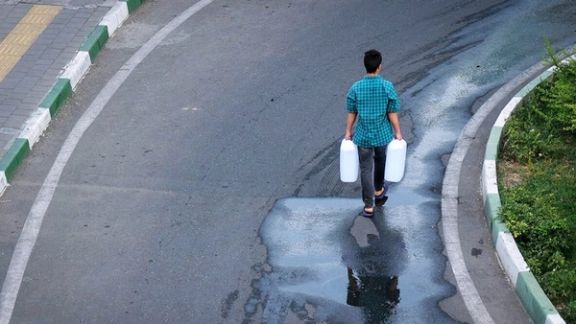Kaveh Madani, Director of the United Nations University Institute for Water, Environment and Health, told Fox News Digital that the crisis was the culmination of decades of environmental mismanagement and overexploitation of resources.
“The water bankruptcy situation was not created overnight,” he said. “The house was already on fire, and people like myself had warned the government for years that this situation would emerge.”
Iran is now facing one of its most severe shortages in decades, with major reservoirs and dams nearing depletion.
Of the five dams supplying Tehran, one has run dry and another is operating at below 8% capacity, according to recent reports. The energy ministry has already announced evening water cuts to refill reservoirs and urged households to reduce consumption by 20% to avoid mandatory rationing.
“The symptoms were already present, and now the flames are undeniable,” Madani said. “We are discussing Day Zero, when the taps would run dry in Tehran and other cities once immune to shortages.”
He described the situation as the product of “decades of mismanagement, worsened by prolonged drought and climate change,” warning that the ecological collapse was now threatening national security.
“When people are out of water and electricity, you face domestic and national security problems that even Iran’s enemies, not even President Trump or Prime Minister Netanyahu, could have wished for this to happen,” he said.
Ripple effect
Madani warned that the crisis could have a ripple effect on Iran’s energy and nuclear infrastructure, which depends on stable power and water supplies.
“If water and electricity shortages persist, any nuclear program would also be impacted,” he said. “Lack of rain means less hydropower generation, leading to both water and power outages.”
He added that the government’s continued defiance of Western powers and its resistance to reform had compounded the environmental strain.
“If they want to stick to their ideology and fight with the West, they must use their natural resources and burn them,” Madani said. “So if there is no water, there is less resilience and less capacity to resist.”
The crisis, he said, is being aggravated by renewed international sanctions and economic isolation.
“There were already sanctions in place, imposed by the United States, and there were also Security Council sanctions that, as you know, have been reintroduced,” he said.
“Iran is in resistance mode, and remaining in this mode means increased pressure on Iran's ecosystem, natural resources, and water, but it also means heightened concerns about food insecurity issues and dependence on food imports.”
Madani concluded that Iran’s water crisis has become a national emergency with global implications.
“This water bankruptcy weakens Iran on the world stage,” he said. “If there is no water, there is less resilience and less capacity to resist.”









